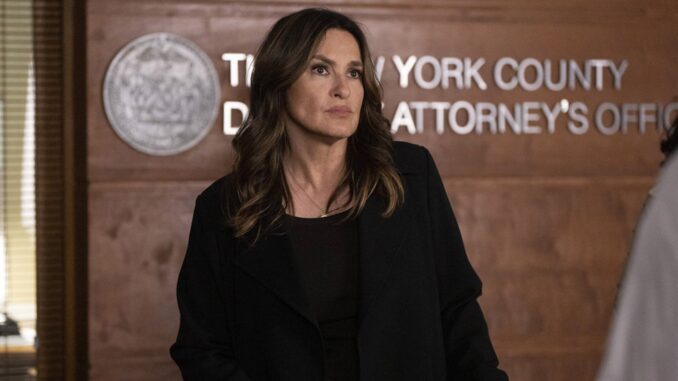
The Silence and the Symphony: How Velasco and Silva’s Departures Tune SVU for a Bold New Direction
In the sprawling, often grim, tapestry of Law & Order: Special Victims Unit, change is an inevitability. Characters come and go, victims find solace or are lost to the system, and justice, in its myriad forms, is ceaselessly pursued. Yet, the news that Detectives Joe Velasco and Grace Silva will not be returning for Season 27 carries a weight that feels distinct, less a routine cast adjustment and more a deliberate clearing of the decks. Their departures, rather than signaling a void, resonate like the strategic silence before a new symphony begins – a decisive move poised to usher in a truly bold new direction for a show that, after 26 seasons, still dares to evolve.
For a series with SVU‘s unprecedented longevity, the peril of stagnation is ever-present. Familiar faces and comforting formulas can, over time, blur into predictability. While Olivia Benson’s enduring presence has been its unwavering anchor, the supporting cast has often been the engine of fresh perspectives and narrative friction. Velasco and Silva, in their respective tenures, occupied roles that, for various reasons, never quite coalesced into the essential, unforgettable dynamic shifts that characters like Stabler, Rollins, or even Amaro brought to the squad room. Velasco, despite actor Octavio Pisano’s earnest efforts, often felt like a placeholder, a man searching for his footing and a definitive voice amidst the established giants. His personal struggles, while providing glimpses into his character, rarely felt deeply integrated into the overarching narrative beyond episodic arcs. Silva, newer to the scene, barely had the opportunity to fully articulate her identity or establish a strong connection with the audience before her exit was announced.
This isn’t to diminish their contributions, but rather to highlight the unique opportunity their absence presents. Unlike the emotionally charged exits of deeply beloved characters, Velasco and Silva’s departures don’t leave a gaping, mourning wound in the show’s fabric. Instead, they leave a space – a rare and valuable blank canvas in the well-worn landscape of television’s longest-running drama. This is the strategic shake-up the show needs: less a reluctant farewell, and more an intentional erasure, allowing the creative team to envision something entirely new, unburdened by past character arcs or unresolved potential.
The “bold new direction” this paves the way for can manifest in several critical ways. Firstly, it opens the door for a complete reimagining of the squad’s internal dynamics. For too long, the team has felt a little… full. With two slots now open, the possibility of introducing new detectives, perhaps even three if the ensemble shifts slightly, allows for an injection of utterly fresh blood and, crucially, diverse perspectives. Imagine a detective who challenges Benson’s sometimes traditional approaches with a sharp, tech-savvy understanding of digital forensics and online predator dynamics. Or a former social worker, now a detective, whose primary focus is trauma-informed care and systemic reform, pushing the show to explore the aftermath of sex crimes in a way that prioritizes victim recovery over pure prosecution. These aren’t just new faces; they are new lenses through which SVU can examine the ever-evolving landscape of sexual violence and justice.
Furthermore, this shake-up offers an unprecedented chance to recalibrate the show’s narrative focus. For years, SVU has masterfully “ripped from the headlines,” but the current cultural conversation around consent, gender, power, and systemic inequities demands a deeper, more nuanced approach. With a refreshed squad, the show could pivot towards more serialized storytelling, allowing for a profound exploration of specific, complex issues over multiple episodes. Instead of merely solving a case, Season 27 could delve into the intricate legal and psychological challenges of, say, prosecuting powerful figures in an era of social media scrutiny, or the long-term impact of new legislative changes on victims’ rights. The departures create the narrative breathing room to move beyond the traditional procedural formula and embrace more character-driven, issue-focused arcs that reflect the profound societal shifts occurring outside the screen.
Ultimately, the exits of Velasco and Silva are not merely about who is gone, but about the profound possibilities of who is yet to arrive, and what stories are yet to be told. It’s a testament to SVU‘s enduring commitment to relevance that, after a quarter-century, it isn’t afraid to shed elements that no longer serve its core mission. This isn’t a retread; it’s a strategic retreat to a launchpad. By embracing this major shake-up, Season 27 isn’t just continuing SVU‘s legacy; it’s laying the groundwork for a revitalized, more impactful, and truly bold chapter in its venerable history. The silence left by Velasco and Silva promises to be filled with a vibrant, urgent new symphony.
